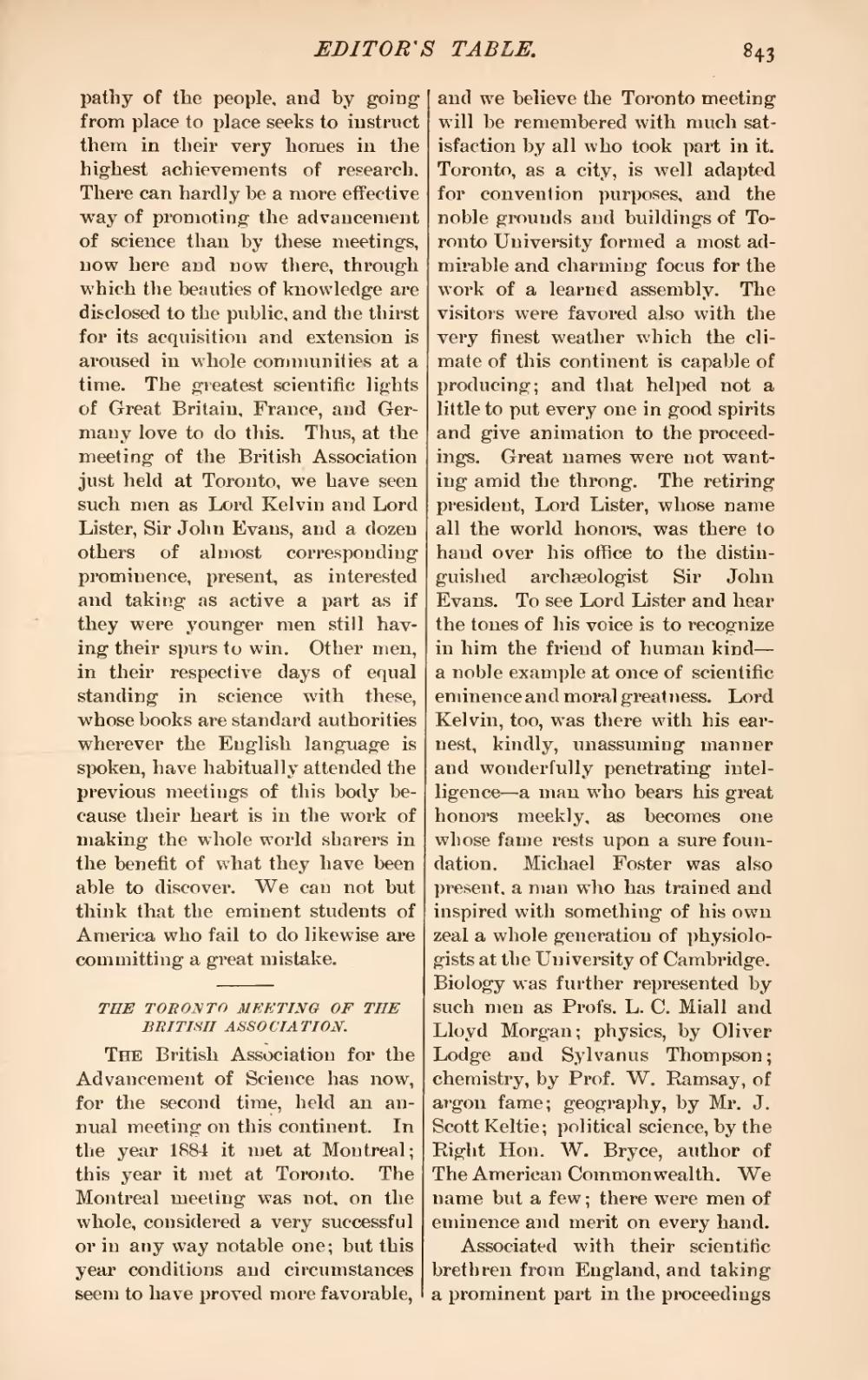pathy of the people, and by going from place to place seeks to instruct them in their very homes in the highest achievements of research. There can hardly be a more effective way of promoting the advancement of science than by these meetings, now here and now there, through which the beauties of knowledge are disclosed to the public, and the thirst for its acquisition and extension is aroused in whole communities at a time. The greatest scientific lights of Great Britain, France, and Germany love to do this. Thus, at the meeting of the British Association just held at Toronto, we have seen such men as Lord Kelvin and Lord Lister, Sir John Evans, and a dozen others of almost corresponding prominence, present, as interested and taking as active a part as if they were younger men still having their spurs to win. Other men, in their respective days of equal standing in science with these, whose hooks are standard authorities wherever the English language is spoken, have habitually attended the previous meetings of this body because their heart is in the work of making the whole world sharers in the benefit of what they have been able to discover. We can not but think that the eminent students of America who fail to do likewise are committing a great mistake.
THE TORONTO MEETING OF THE BRITISH ASSOCIATION.
The British Association for the Advancement of Science has now, for the second time, held an annual meeting on this continent. In the year 1884 it met at Montreal; this year it met at Toronto. The Montreal meeting was not. on the whole, considered a very successful or in any way notable one; but this year conditions and circumstances seem to have proved more favorable, and we believe the Toronto meeting will be remembered with much satisfaction by all who took part in it. Toronto, as a city, is well adapted for convention purposes, and the noble grounds and buildings of Toronto University formed a most admirable and charming focus for the work of a learned assembly. The visitors were favored also with the very finest weather which the climate of this continent is capable of producing; and that helped not a little to put every one in good spirits and give animation to the proceedings. Great names were not wanting amid the throng. The retiring president, Lord Lister, whose name all the world honors, was there to hand over his office to the distinguished archæologist Sir John Evans. To see Lord Lister and hear the tones of his voice is to recognize in him the friend of human kind—a noble example at once of scientific eminence and moral greatness. Lord Kelvin, too, was there with his earnest, kindly, unassuming manner and wonderfully penetrating intelligence—a man who bears his great honors meekly, as becomes one whose fame rests upon a sure foundation. Michael Foster was also present, a man who has trained and inspired with something of his own zeal a whole generation of physiologists at the University of Cambridge. Biology was further represented by such men as Profs. L. C. Miall and Lloyd Morgan; physics, by Oliver Lodge and Sylvanus Thompson; chemistry, by Prof. W. Ramsay, of argon fame; geography, by Mr. J. Scott Keltie; political science, by the Right Hon. W. Bryce, author of The American Commonwealth. We name but a few; there were men of eminence and merit on every hand.
Associated with their scientific brethren from England, and taking a prominent part in the proceedings

